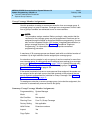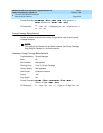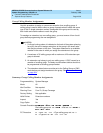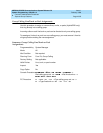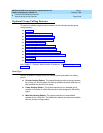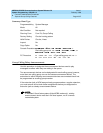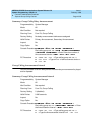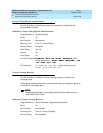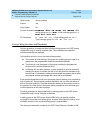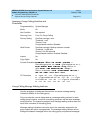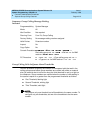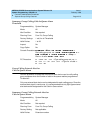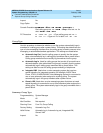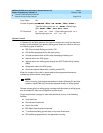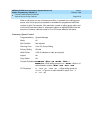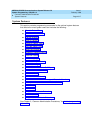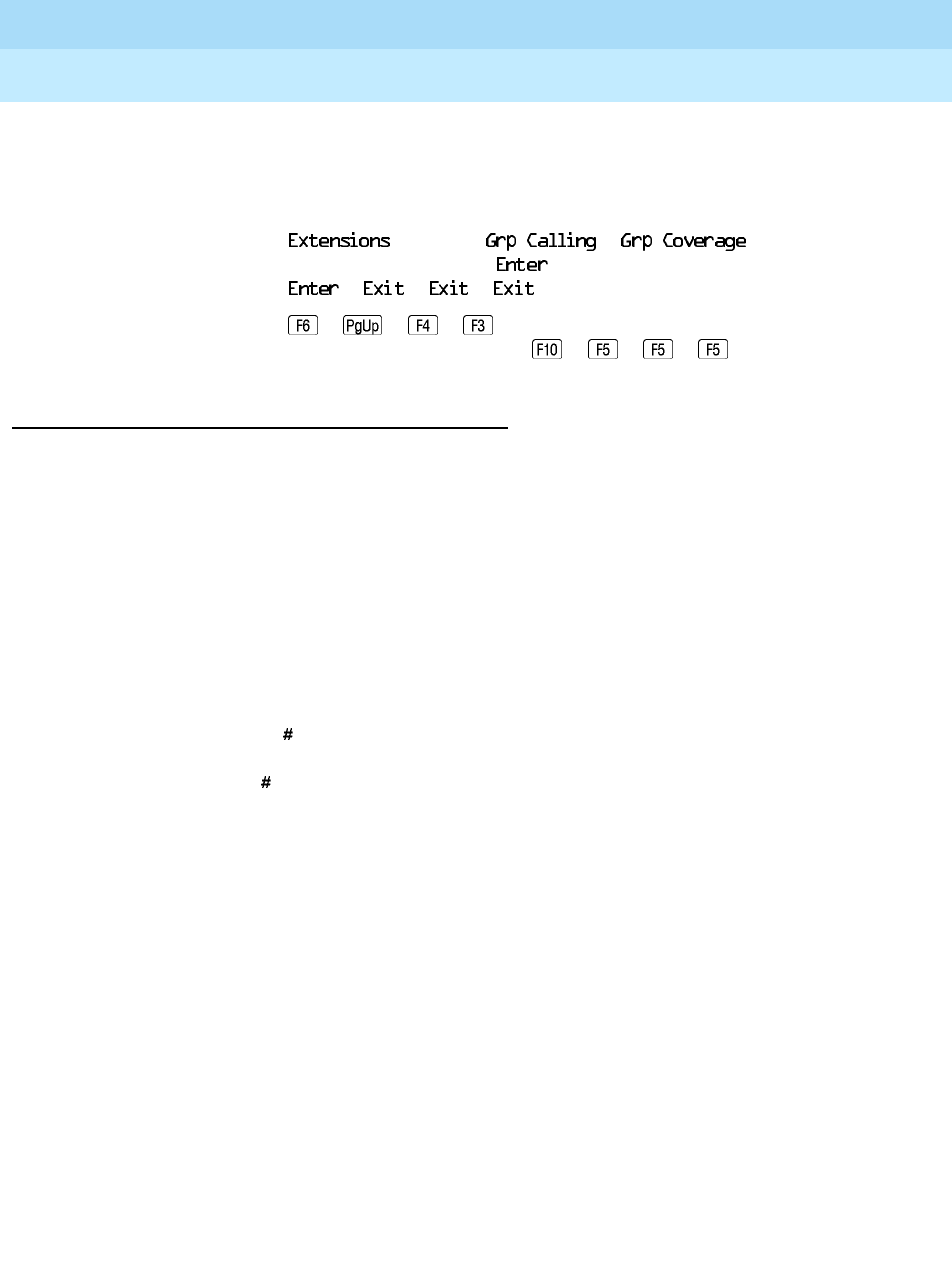
MERLIN LEGEND Communications System Release 6.0
System Programming
555-660-111
Issue 1
February 1998
Common Administrative Procedures
Page 4-310Optional Group Calling Features
4
Valid Entries Group numbers
Inspect Yes
Copy Option No
Console Procedure
→More→ → →Dial
calling group ext. no.
→ →Dial coverage group no.→
→ → →
PC Procedure → → → →Type calling group ext. no.→
Type coverage group no.→ → → →
Group Calling Overflow and Thresholds 4
Use this procedure to designate either another calling group or the QCC queue
(Hybrid/PBX only) to receive overflow calls. This procedure also specifies
overflow threshold and methods.
Call overflow occurs in one of the three following ways:
■ The number of calls waiting in the queue for a calling group is equal to or
greater than the programmed threshold (overflow threshold).
■ The time that a call has spent in the queue exceeds the programmed
timeout value (overflow threshold time).
■ In Release 6.0 and later systems, a caller responds to a voice prompt by
pressing the
key to indicate that his or her call should be handled as an
overflow call. For example, a delay announcement may specify that a caller
can press
to leave a message with voice mail or an operator.
If the overflow threshold time is set to 0 seconds (factory setting), then overflow by
time is turned off. Prompt-based overflow distribution can co-exist with either or
both of the other methods. Overflow distribution based on the number of calls in
the queue or the time spent in the queue takes precedence over calls that go to
overflow because of the caller’s prompt.
Overflow coverage can be provided only by calling groups or the QCC queue
(Hybrid/PBX only), not by individual extensions.
A calling group or the QCC queue (Hybrid/PBX only) can provide overflow
coverage for more than one calling group; however, which group’s calls go to an
available member in the overflow calling group is unpredictable.
The factory-set extension number for the QCC Listed Directory Number is 800.



